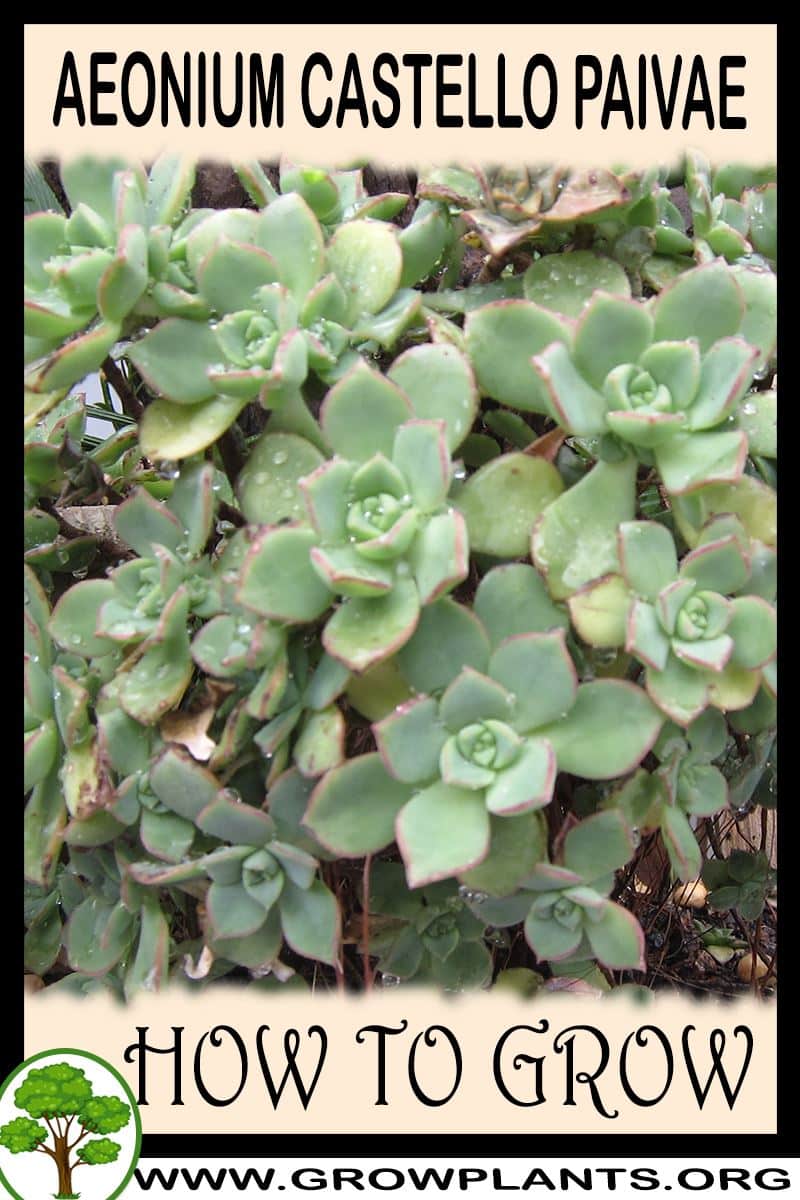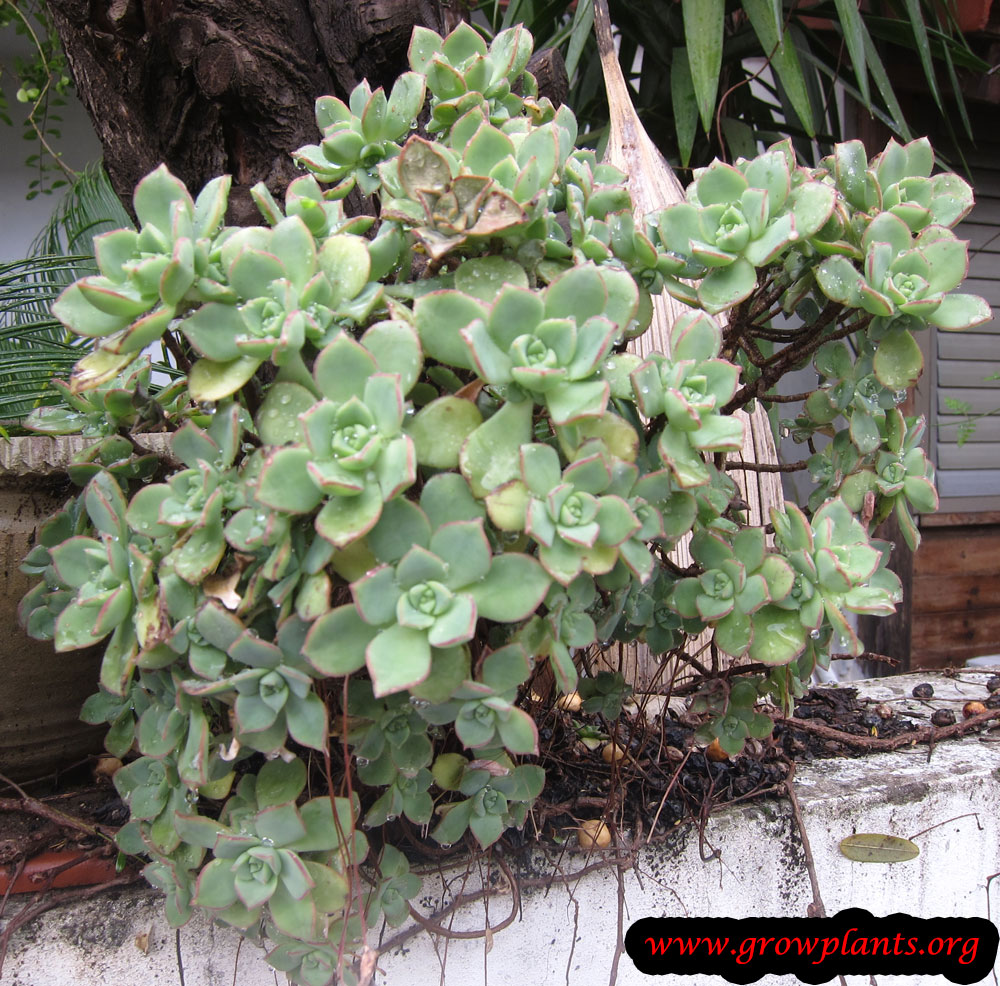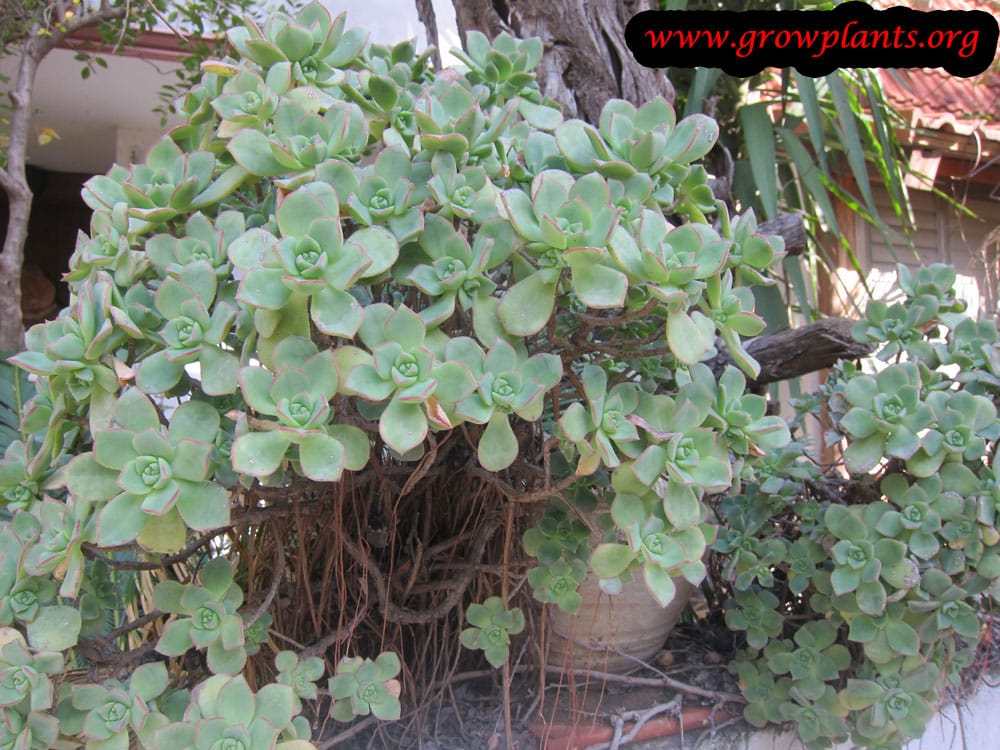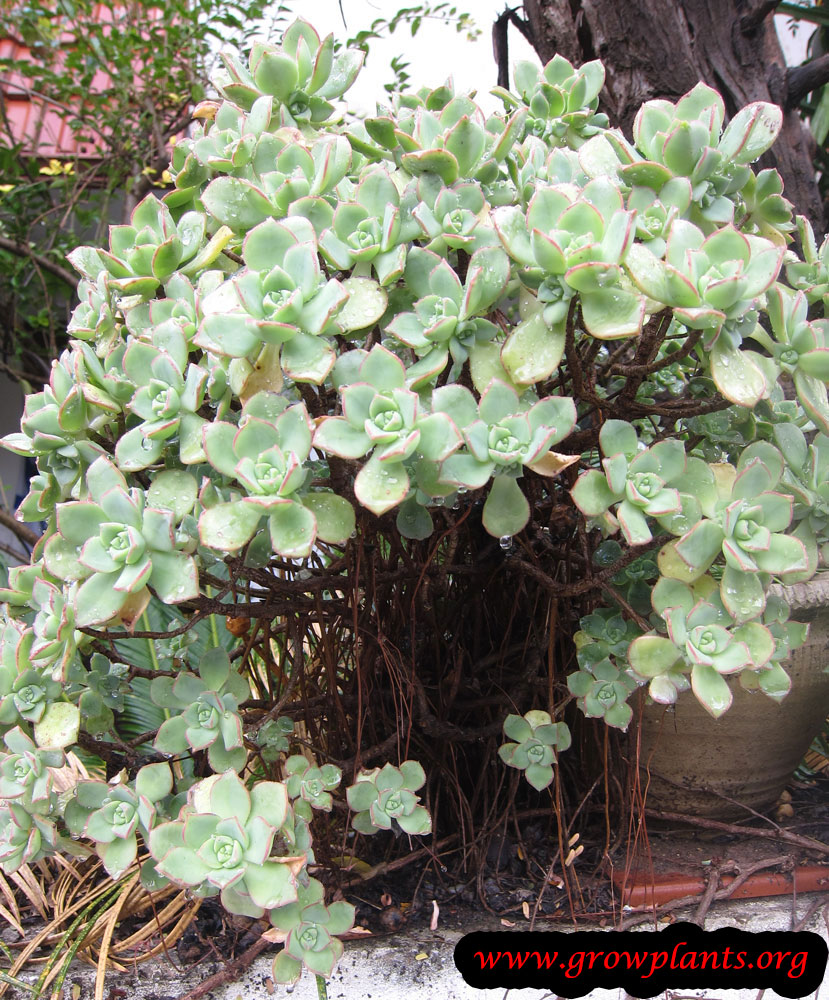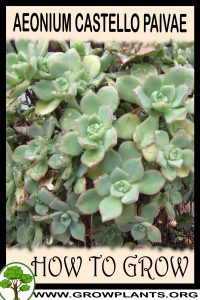
Aeonium castello paivae grow and care – succulent of the genus Aeonium castello paivae also known as Tree aeonium, Aeonium castello paivae perennial evergreen or deciduous used as ornamental drought tolerant plant, can grow in mediterranean, desert, subtropics climate and growing in hardiness zone 10+.
Leaves coloe green and can prominent edge pink-red, the shape wedge shape, leaves grow in rosettes shape.
Aeonium castello paivae flower
Flower color white-pink, the flowers grow on inflorescence in the end of the stems in open cluster.
Aeonium castello paivae for sale – Seeds or Plants to Buy
No products found.
How to grow Aeonium castello paivae growing and care:
Well-drained soil, can survive frost but better without, dry tropic
How to care:
Cut once a year and consider to put fertilizer once a year, location with a lot of rain better to plant them in raising bed in order to prevent puddle in the roots
What is the best way to start growing?
Plant / Seed (explanation bellow) / Vegetative Reproduction / propagation by cutting stem or leaf
How to propagate by cutting:
Propagation by cutting leaves or stem, for propagate by stem and leaves do in the same way, cut the leaf in the base better with hand not anything sharp and wait at least 24 hours, if it’s not cut in the base, cut by sharp object or it is stem need wait few days until the tissue will hill, after this put it in well-drained soil, and water it every few days let in dry but not fully dry, after few weeks to month it start to grow root, propagation season – better to start in the late spring to early summer but always can do it indoor (depend the temperature in the house).
Is it necessary to use vegetative reproduction?
Yes (if you want to have the same as the parents)
Difficulties or problems when growing:
Sensitive to overwater
Planting season:
Spring to summer in hardiness zone 10a, spring to autumn 10a-11a, all year hardiness zone 11+.
How to plant:
Planting in location with good drainage, the plant doesn’t like and might die if will sit in puddle so in rainy location better to grow above the ground level and use raising bad, better to dig bigger hole and put in the soil well ventilated soil, better to plant it in sandy soil.
Pests and diseases:
Snails, slugs, aphids, meal bug
Pruning season:
All year, but better after blooming season
How to prune:
Old leaves, and for design dead leaves and bloom stem, infected leaves if it’s not possible to clean better to cut them out that won’t infected all the plant
Size of the plant:
20-50cm, 8-20 inches
Growth speed in optimal condition:
Slow growing – when the plant young or start by seeds / Medium growing – only with a lot of fertilizer in full sun and grow faster when establish
Water requirement:
Small amount of water / Average amount of water, if the leaves become soft and start to weep need to add water
Light conditions in optimal condition for growing:
Full Sun / Half Shade / Full Shade in hardiness zone 10a need to give more than full shade, the plant might die overwinter
Is it possible to grow indoor as houseplant?
Yes
How to care indoor:
When growing indoor need to choose location with light and also need air ventilation once in few days, better not to put the plant next to heater, and water less in regular condition but with air condition and heater need to increase the amount of water
Growing is also possible in a planter /flowerpot / containers:
Yes, when growing in containers need to choose container that 60-90% bigger than the roots ball or possible to grow it in small but cut the roots when planting, also the drainage of the soil it’s important, but after few years drainage of the soil not function the same so need to change it to new soil, possible to use sandy, potting mix or cactus potting mix, better to put little stone little rocks like: gravel, lava rocks or pebbles it will take care of the drainage.
Blooming information
Bloom season:
Spring
General information about the flower:
White-pink flowers grows on inflorescence in the end of the stems in open cluster.
How to grow Aeonium castello paivae from seeds
Sowing requirement:
Location with light and better sandy or well ventilated soil and also good drainage is important, better temperature 20-28C (68-82F)
Saving seeds and care until sowing:
Dry and dark place in room temperature
Sowing season:
Spring will be better but possible in hardiness zone 10a spring to summer, in hardiness zone 10b-11 spring to autumn, hardiness zone 12+ all year, better in hot summer location not to sow in the summer
How to plant:
Sowing in soil with good drainage and light, possible sandy soil but size of the particle need to be not too much big, possible to sow in potting mix, peat soil and vermiculite (when sow in vermiculite need to put only the layer of the seeds and under this to put soil
Planting spacing:
20-30cm, (8-12 inches)
Depth of Sowing:
0.5cm, (0.25inches)
Conditions for seeds germinate:
Moist soil but do not over water and don’t let it dry
Watering requires for Seeds:
Small amount of water / Average amount of water
Germination time:
6-8 weeks, but might take longer
Condition of seedling:
Light with moist soil and well ventilated soil
Scientific name:
Aeonium castello paivae
Categories
| Blooming Seasons |
|
|---|---|
| Flower colors |
|
| Climate |
|
| Leaf color |
|
| Ornamental parts |
|
| Plant growing speed |
|
| Plant life-form |
|
| Plant Uses |
|
| Planting Season |
|
| Plants sun exposure |
|
| Watering plants |
|
| Hardiness zone |
|

